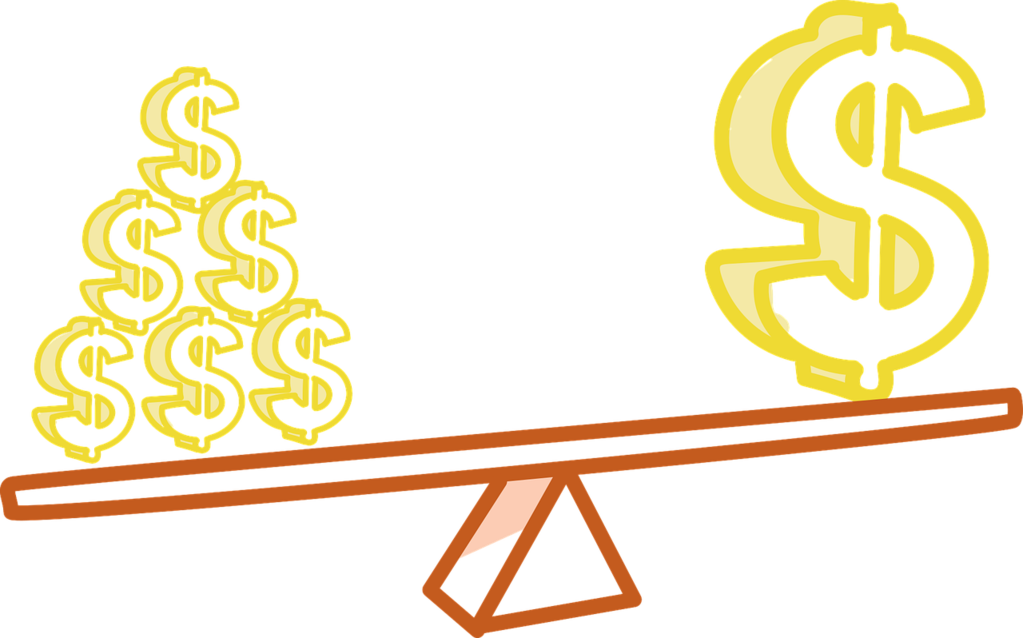- You are here:
- Home »
- Blog »
- Investing in Paper Assets »
- Beware – Dangerous Leverage Can Cause Bankruptcy
Beware – Dangerous Leverage Can Cause Bankruptcy
One of the power tools of Real Estate Investors is Leverage. This power tool can be used to create wealth quickly, but if used inappropriately, it can cause you to lose wealth quickly.
I’m going to keep the numbers simple throughout this article and avoid any complicated formulas to understand this.
When you take out a mortgage you are often able to put down 20% and get a loan for the balance of the purchase. If you are buying a $1,000,000 residential property you can use $200,000, and your mortgage is at 80% loan to value.
If you get 5% appreciation for that property in a year, the value of the property goes up $50,000, which is a 25% return on your $200,000 investment, this is the power of leverage for good.
There have recently been high-profile investors who have used leverage inappropriately and caused them to file for bankruptcy and create hardship among hundreds of investors. Sometimes this has been putting second, third mortgages, on properties causing loan-to-values to exceed 100%.
You might ask how can you have a mortgage higher than the value of a property?
Banks are not the only ones who can lend mortgages, private individuals can lend directly by themselves or through mortgage brokers. If the proper due diligence is not done, and checks are not made, it is very possible to have mortgages registered in excess of the value of a property. An unscrupulous person can over leverage a property with debt.

There are a few real estate educators that are promoting the use of unsecured promissory notes in order to put a property at 100%+ loan to value, in addition to getting a 80% mortgage, they borrow the 20% as a promissory note. These notes are promises to pay, and often not worth much more than the paper they are written on. They use other people’s money to create a zero down deal for the investor. This may work as a strategy where value is being created but it can quickly backfire if value isn’t achieved through repositioning an asset or creating value in the real estate project. If the real estate market goes down when leverage is at 100%, you will be in real trouble, even if the value you added or repositioning is successful. These are strategies promoted by people who have onle seen one part of the real estate cycle – the boom, there are other parts of the cycle as well bust and recovery.
It is even worse for the promissory note holder who has no security, if there is no asset that has been pledged for the promissory note. So if the borrower defaults the only way that the lender can receive their funds is to go after the borrower through the court system. If the borrower has claimed bankruptcy, and there are no assets that have been pledged, how are the funds going to be retrieved?
It can go both ways however. There are some mortgage brokers and private lenders who are predatory and are looking to acquire properties through pushing investors into products that have onerous fees and charges high 17%+ interest rates, in hopes that the investor defaults or push them into bankruptcy.
As a professional real estate investor, one of the things you want to do is avoid going higher than 80-85% loan to value on any one property and keep your real estate portfolio loan to value below 60%. If you are going higher than 80% loan to value make sure that the cash flow generated from the project is enough to carry the interest on the debt that is being placed on it. Where I have seen investors get into trouble is where the cost of the monthly debt is well beyond the income that can be extracted from the property monthly.
As a lender, do you want to do due diligence on the borrower and make sure that they have a long track record of success. I would prefer to see at least a decade or more in the real estate space, and have gone full cycle through a number of projects. Make sure that you understand the business plan of the borrower and ensure that you believe they can follow through on the plan. Ensure that you get an appraisal done of the property that you are lending against and ensure that the registration of the mortgage has been done correctly.
One last piece of advice. Please, please, please – if you are in any sort of mental anguish because you invested into a project that has gone the wrong way. Your life and mental health are more important than money. You can always make more money, you only have one life. Always seek help! I know that there are people like me, and members of DurhamREI that are willing to help you.
About the Author Quentin DSouza
Quentin D’Souza is the Chief Education Officer of the Durham Real Estate Investor Club. Author of The Action Taker's Real Estate Investing Planner, The Property Management Toolbox: A How-To Guide for Ontario Real Estate Investors and Landlords, The Filling Vacancies Toolbox: A Step-By-Step Guide for Ontario Real Estate Investors and Landlords for Renting Out Residential Real Estate, and The Ultimate Wealth Strategy: Your Complete Guide to Buying, Fixing, Refinancing, and Renting Real Estate.
Related Posts
Passive Investment Strategies Yielding 10%+ Returns: DurhamREI Member Survey
How Real Estate Investor’s Can Use Creative Financing To Get A New Vehicle For Free
There are Lots of Ways to Make Money in Real Estate
Mutual Funds or Real Estate – Which gives you the Best Return on Investment?

